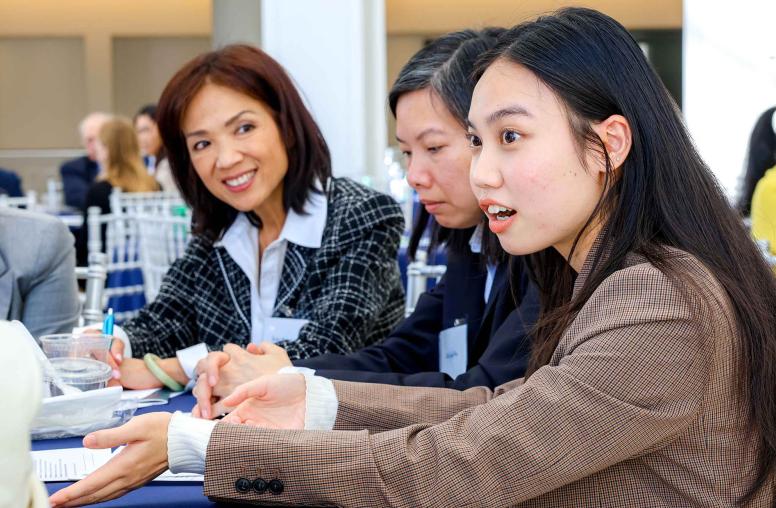Landmark U.N. Resolution Elevates Youth in Work for Peace
In a landmark decision, the United Nations Security Council this week adopted its first resolution to address the critical role that young people play in preventing and resolving conflict. Resolution 2250 on Youth, Peace and Security, which passed with the unanimous support of the U.N.’s 193 member states, is especially vital given that more than half of the world’s population is under the age of 30, and 70 percent of them are concentrated in Africa and the Middle East, two regions roiled by violent conflict.

Resolution 2250 on Youth, Peace and Security acknowledges young people and youth-centric organizations as important partners in building and sustaining peace. It calls for involving young people in decision-making at the local, national, regional and international levels, including in peace processes and dispute resolution. The measure was introduced by Jordan during its presidency of the Security Council in April, and comes at a time when the region and the world is facing a rising tide of violence and extremism at the hands of militant organizations like ISIS, Boko Haram and others.
The resolution text notes that “today’s generation of youth is the largest the world has ever known and that young people often form the majority of the population of countries affected by armed conflict.”
The language echoes another historic Security Council measure 15 years ago this year, U.N. Security Resolution 1325 on Women, Peace and Security. It called for protecting women and girls in conflict and involving them – also half the world’s population -- more in decision-making, and has since prompted at least 55 countries to adopt national action plans putting the provisions into effect.
Similarly, Resolution 2250 celebrates the powerful role and potential of youth to be positive agents for peace within their societies, as 1325 recognized the value and influence of women.
For USIP, Resolution 2250 affirms a deeply-held understanding that young people are the key to preventing violence and building sustainable, inclusive communities. Youth engagement and training have played a central role in USIP programing across the world since 1989. From facilitating Arab/Israel summer camps during the second Intifada to training teenagers to conduct conflict resolution in the wake of the Balkans war, we’ve seen the power of youth as peacebuilders for decades.
USIP has recently been training a community of young leaders across the Middle East and Africa to tap into this power for change. Based in nine countries, the Generation Change program provides youth with skills for effective leadership and conflict management to enable them to sustain social change, address conflict non-violently and work cooperatively to solve problems within their communities. Generation Change connects these leaders online and in the field so that they can build lasting relationships rooted in peer to peer mentoring.
Such constructive online connections with youth are essential. As Resolution 2250 notes, there is legitimate concern over the growing use of the Internet by extremists to recruit and incite youth to commit violence. In addition to the Generation Change network, USIP’s Global Peacebuilding Center is harnessing the internet to share a custom curriculum of multimedia presentations, interactive tools and online training to nurture the next generation of peacebuilders.
There is a long way to go from recognizing the power of youth to mobilizing that strength to create a more peaceful, prosperous and inclusive world. And while there is still much to do, Resolution 2250 offers an important and historic step towards a world free of violent conflict.
Nancy Lindborg is the president of USIP.


